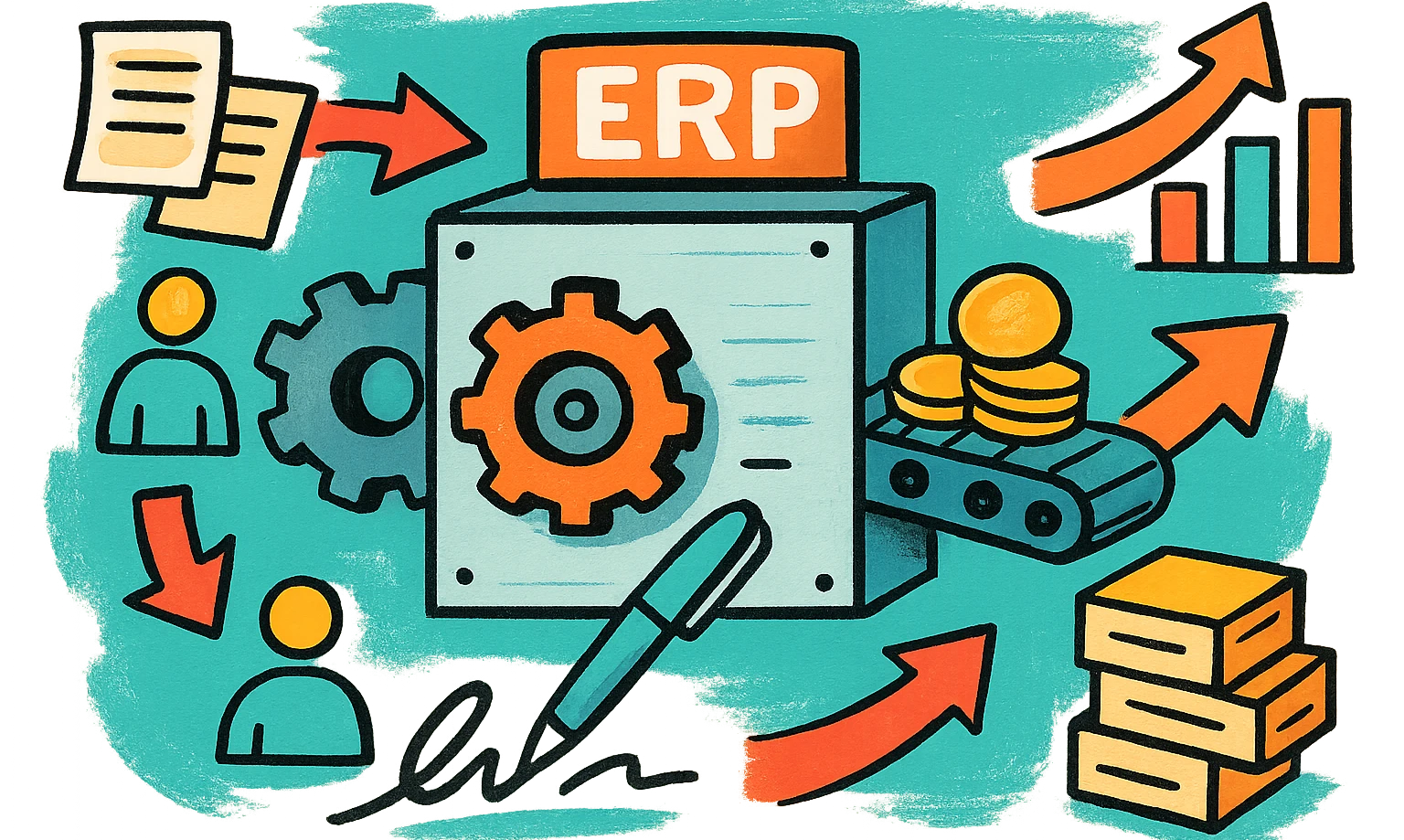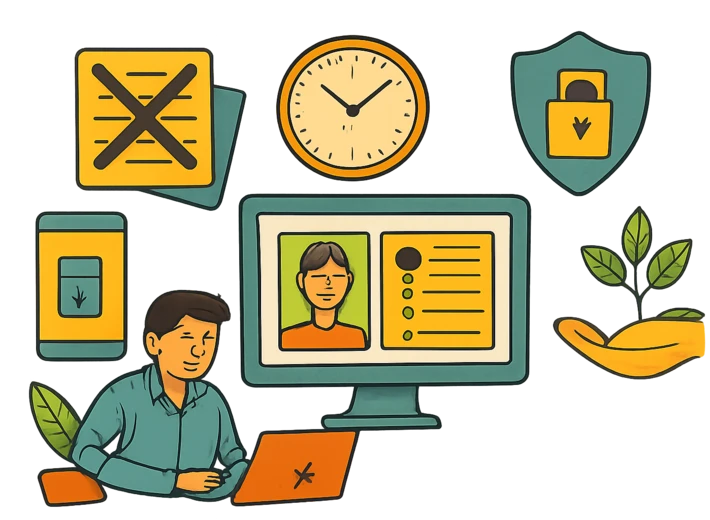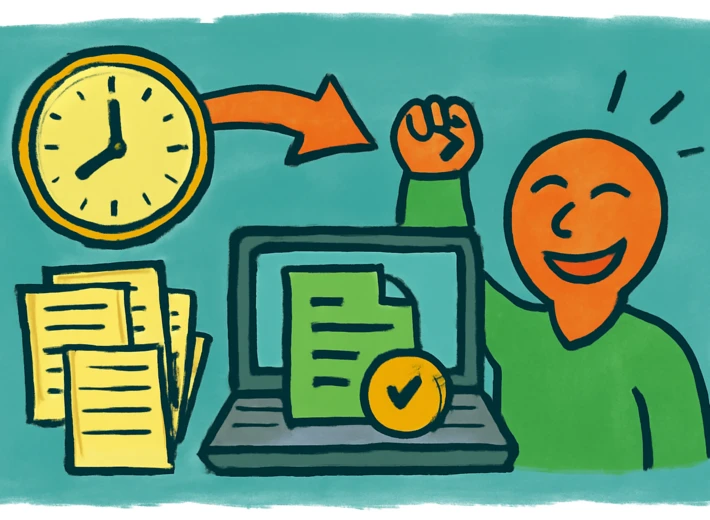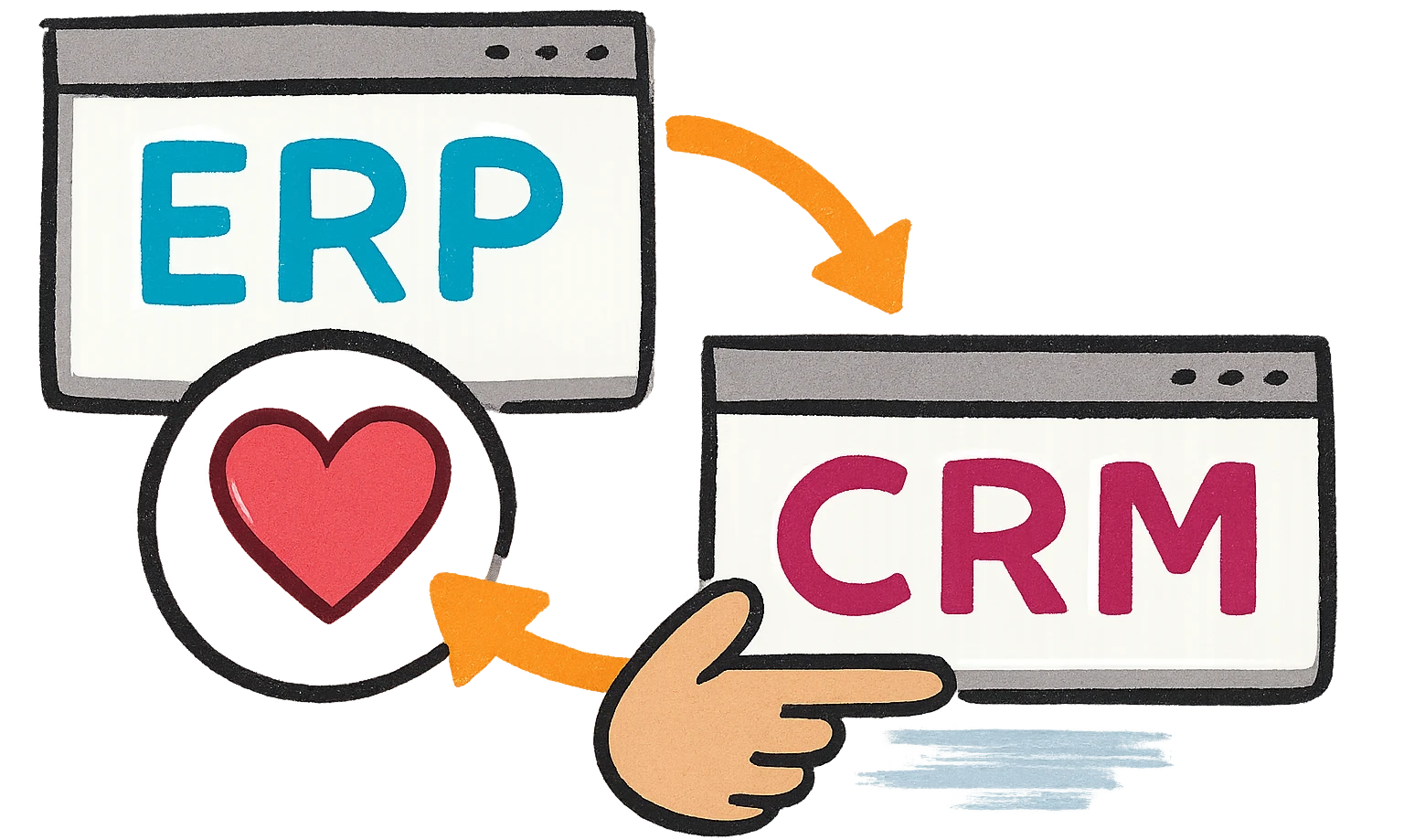CRM vs. ERP? What is the Difference and How to Choose?

What is an ERP System?
ERP (Enterprise Resource Planning) systems are integrated software solutions designed to optimize and streamline all aspects of a company. They encompass functions such as managing production processes, finances, procurement, inventory management, and more. It's essential to emphasize that ERP systems focus on cost minimization and achieving optimal product costing.
What is the difference between CRM and ERP?
The simplest (and therefore not very accurate) answer we can give is that ERP systems focus on cost minimization, while CRM focuses on revenue maximization. Both systems share part of a company's information base – employees, customers, and nomenclature. However, while ERP's ultimate goal is to achieve optimal product cost through efficient production, procurement, and inventory management, CRM software emphasizes managing the customer base and maximizing profits from it.
Should ERP or CRM be implemented first?
It all depends on the specifics of your business. Typically, for trading and manufacturing companies, the ERP system should come first to improve the quality and reduce the cost of the offered goods. Then comes the question of how to make the sales process more efficient once the product is already competitive and of high quality. In service-oriented businesses, CRM is usually the more critical software system because the company's revenues are much more dependent on the efficiency of the actual sales process and the quality of service.
All-in-one solution?
In many cases, when an ERP solution claims to include CRM, it often refers mainly to marketing functionality rather than substantial CRM capabilities. There are a few exceptions (SAP being one of them). With global manufacturers like Microsoft and Oracle, for example, CRM solutions are separate packages that can be integrated with the ERP system. In the end, it all depends on whether a specific software solution can meet your needs.

Similar Blog Posts

ERP – now or never?
The decision to implement an ERP system is usually made in one of two ways: by asking “How much does it cost?” (a cost‑based mindset) or “What value does it unlock?” (a value‑based mindset). When you stay only in the cost‑based mode, ERP looks like a big expense and it feels logical to “push it to next year”, while a value‑based view shows that the average ROI from ERP is around 150–400% over 1–3 years, making it one of the most profitable investments a company can make.
18 December 2025

Digital Employee File – 7 Reasons to Go Digital
In the era of digital transformation, where 77% of employees are more productive when provided with digital tools according to PwC, the digital employee file becomes a key success factor for any organization.
22 August 2025

ERP vs. CRM?
If your organization has previously implemented an ERP solution and you've held the belief that it will be the only system used within the company, you may want to consider what a sub-module of the ERP system is CRM and how to utilize it. The truth is that CRM is an entirely separate type of software system, and in a significant number of companies worldwide, ERP and CRM work in parallel, exchanging data to automate processes within the company.
24 October 2023

All-in-one solution?
In many cases, when an ERP solution claims to include CRM, it often refers mainly to marketing functionality rather than substantial CRM capabilities. There are a few exceptions (SAP being one of them). With global manufacturers like Microsoft and Oracle, for example, CRM solutions are separate packages that can be integrated with the ERP system. In the end, it all depends on whether a specific software solution can meet your needs.
Author: Julian Calderon
